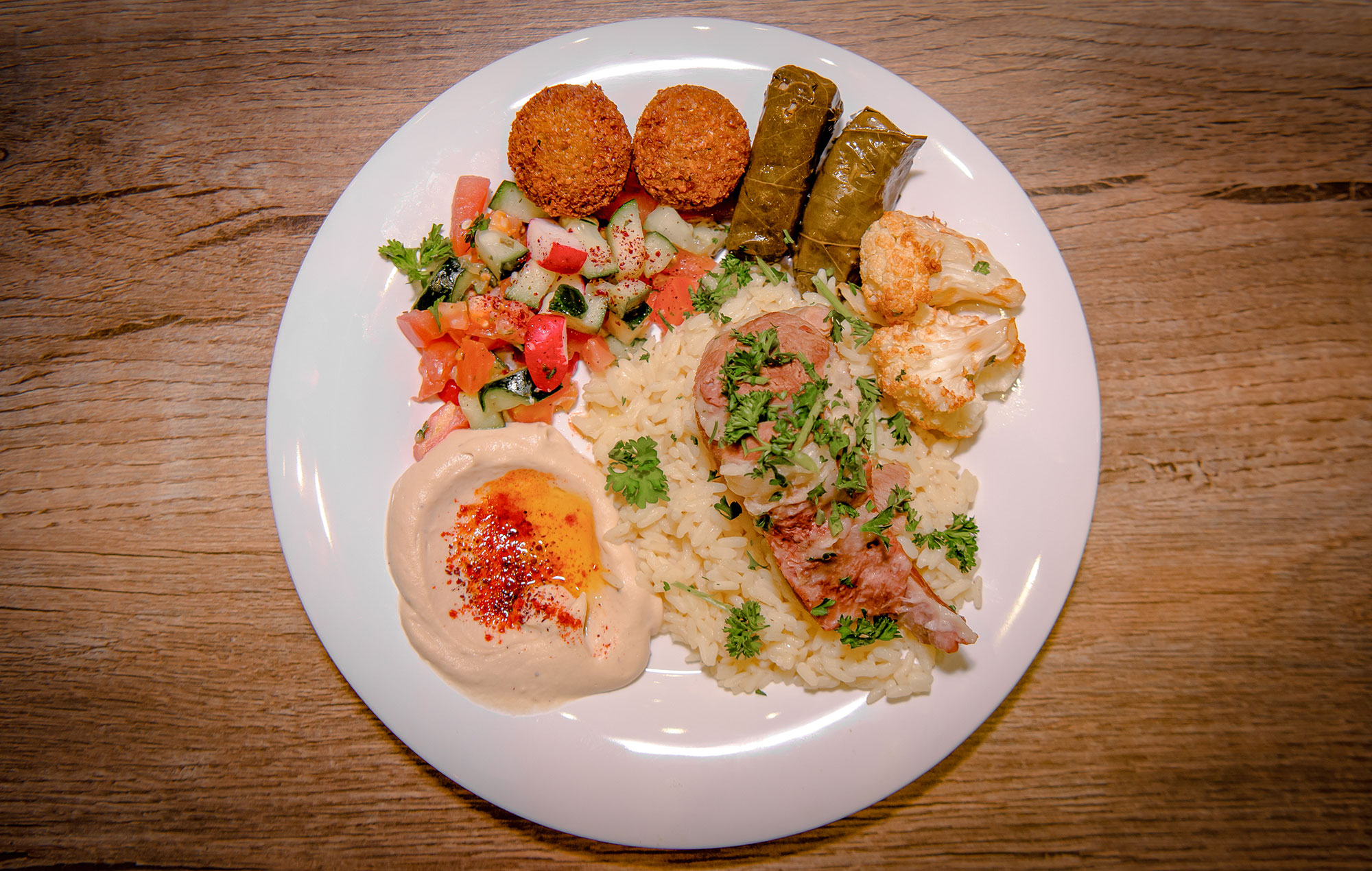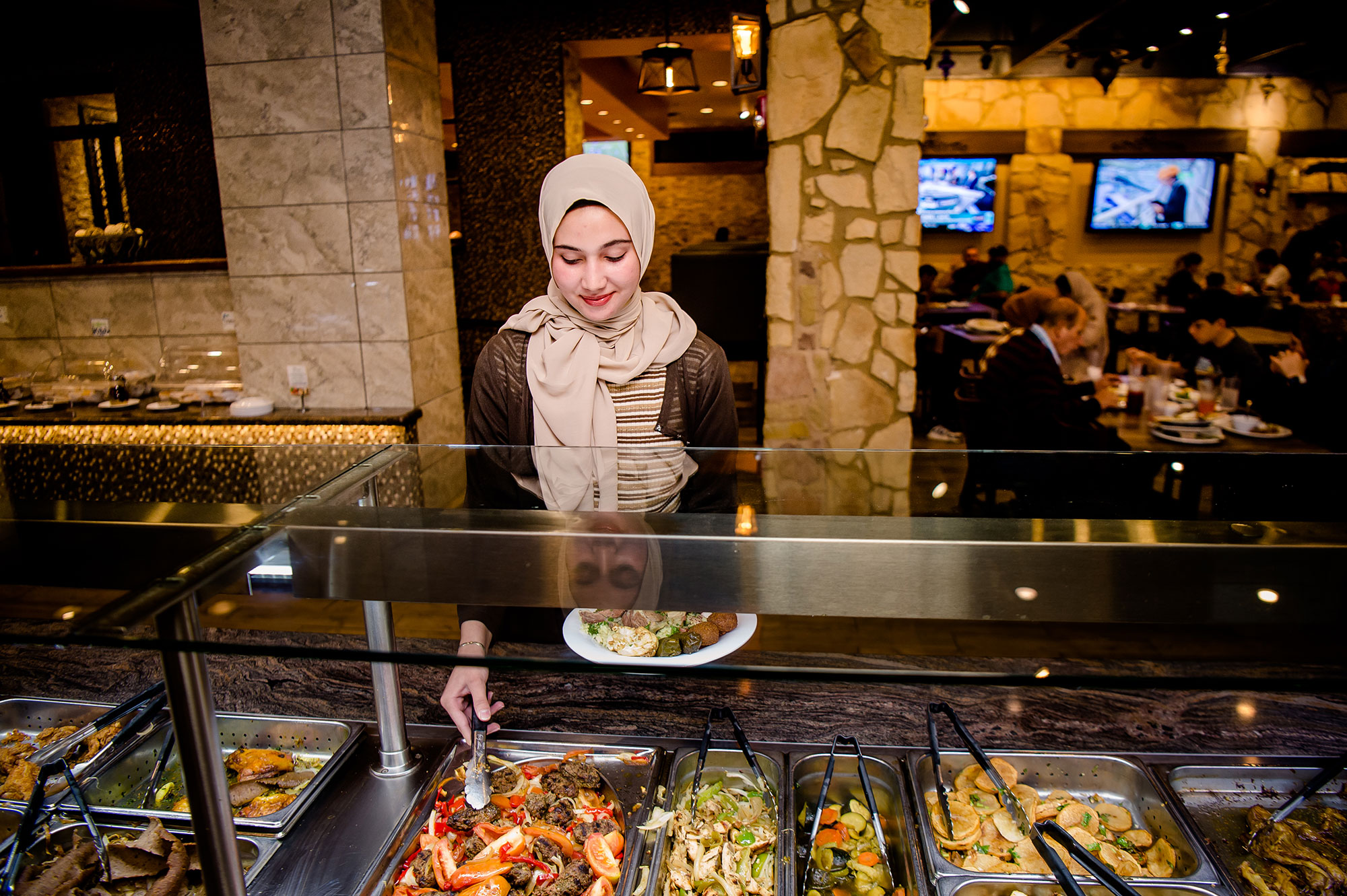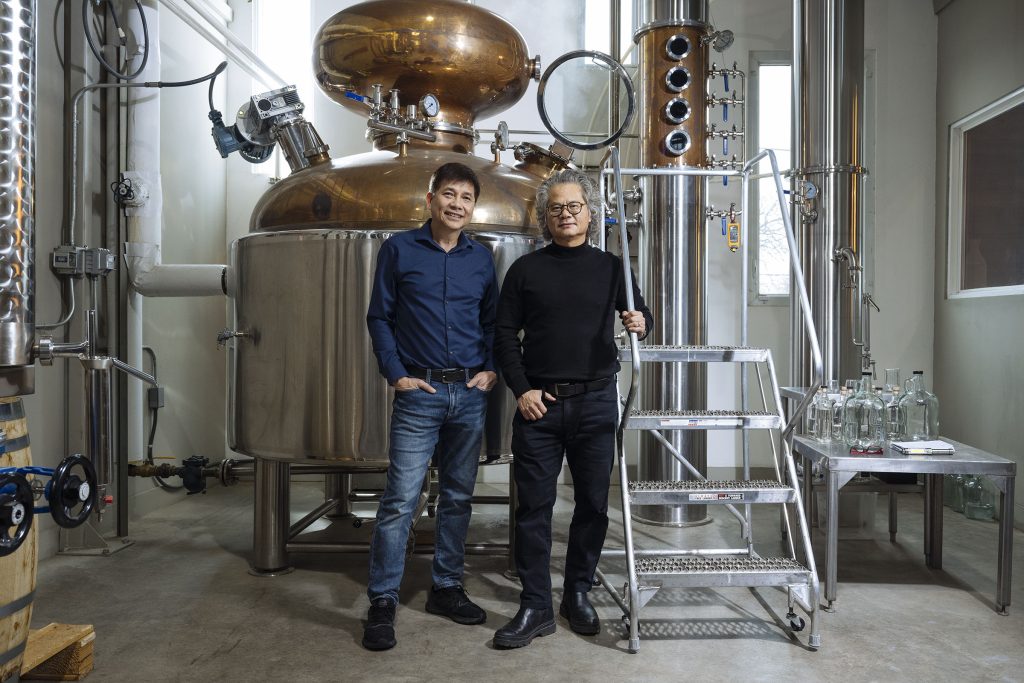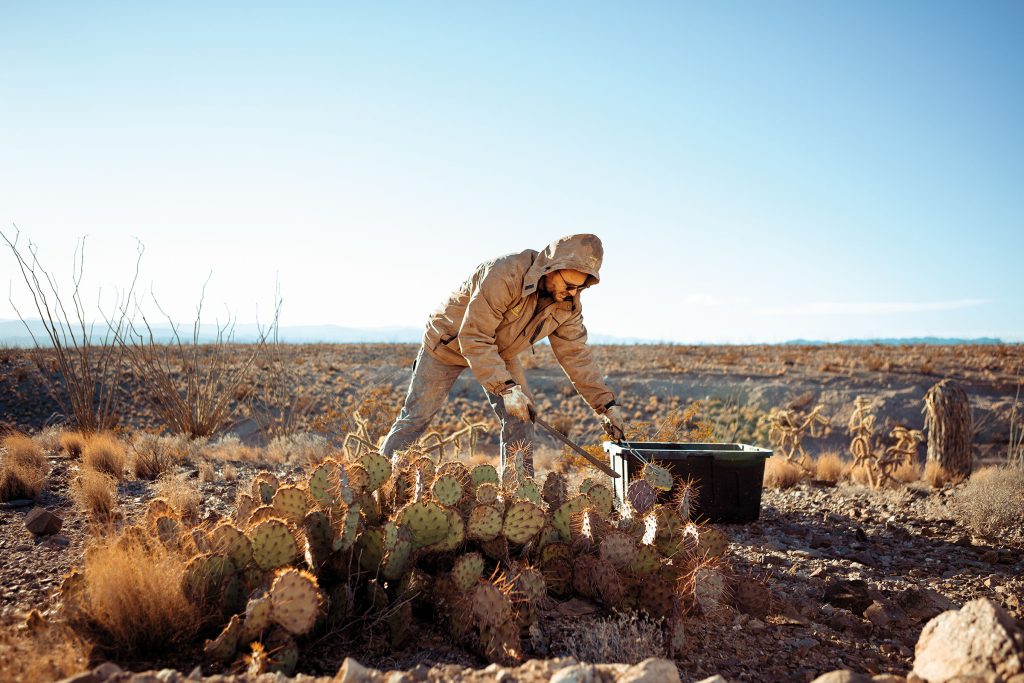
A traditional Muslim meal prepared at Dimassi’s in Texas. Photo by Tiffany Hofeldt
Nordean Nouiouat moved from Algeria to Texas 25 years ago hoping to give his family a better life. A father of five, Nouiouat has achieved what he set out to do, and is helping a new generation embrace their American, Texan, and Muslim identities. “This country—this state—has offered us so many possibilities. We must do our best for America and for Texas,” he says, standing at the entrance of the Islamic Center of Irving in March 2023.
March marks the start of Ramadan, alternatively spelled Ramzan, Ramazan, or Ramjan, which is the holiest of the 12 months in the Islamic lunar calendar. As the community development manager of the center, a position that he has now held for nine years, Nouiouat is responsible for community affairs at one of the largest mosques in the state. Three thousand worshippers attend the weekly prayers at the mosque on Friday, the holiest day in Islamic tradition, with numbers growing higher in Ramadan. “We beautify the mosque, add new decorations, so that we as the Muslim community can properly welcome Ramadan and ensure that we have a happy and prosperous month,” Nouiouat says.
For those who observe Ramadan, it’s custom to fast from sunrise till sunset. Sunrise is preceded by Suhoor, also called Sehri, the meal before the fast commences, while Iftar, or the breaking of the fast, follows sunset. Food carries special prominence during Ramadan. The mosque has milk and dates available at sunset across the month to allow worshippers to break their fast. Breaking one’s fast by eating a date is an Islamic tradition rooted in sayings of Islam’s prophet Muhammad. The mosque arranges full Iftar meals featuring meat, rice, and vegetable dishes, every Friday and Saturday for over 1,500 people. One Iftar every Ramadan is dedicated to new believers. “Muslims and non-Muslims, everybody is welcome for Iftar,” Nouiouat says.
Ramadan rituals also include Taraweeh, voluntary late-night Salah, or prayer, that can be performed daily, and Itikaaf, where some worshippers stay at a mosque throughout the last 10 days of the month and dedicate the period to Islamic prayers and recitation of scriptures. While these rituals are performed in high numbers across mosques across the state, many Texans also partake in unique practices where they use the spirit of communion in their own ways.
Ally Adnan and his family, for instance, make small gift bags to send to close friends. Adnan, who lives in Allen, designs matching tchotchkes for Ramadan-themed bags. In 2023, the bags contained a book of prayers, a tin of mints, prayer beads, dry fruit, dates, and a greeting card. Adnan himself is private about his beliefs, and enjoys a simple, yet traditional Iftar at home, followed by Namaz (Salah) and some quality time at home with his family.
“My kids are full-time students and both my wife and I hold jobs. It is difficult to find the time, energy, and motivation to host, or even attend, Iftar parties, after a full day of work while fasting,” Adnan says. “We prefer preparing Iftar boxes for friends who live close to our home.”

Texas Mediterranean restaurant chain Dimassi’s make special arrangements for Iftar.
During the first week of Ramadan 2023, the family distributed Iftar boxes that were a hat-tip to Adnan’s Pakistani heritage. The boxes featured pakoras, vegetable fritters; dahi bhallas, lentil fritters; daal, a South Asian mainstay; murgh karahi, a spicy chicken dish; and khobani ka meetha, a desert made from dried apricots. All are popular Iftar offerings in the Indian subcontinent. “Preparing and distributing the boxes brings a lot of happiness to all of us,” Adnan says.
Halal eateries across Texas make special arrangements for Iftar. Many traditional South Asian and Middle Eastern dishes are available at buffets such as the one offered by Dimassi’s across Texas. Dimassi’s in Austin offers a range of salads and vegetarian dishes, in addition to the traditional meat based Middle Eastern offerings, to a growing number of Muslims opting a more meatless lifestyle. Texas has one of the largest Muslim populations in the U.S. With 62 mosques in the area, Dallas-Fort Worth has been referred to as the “Medina of America.” There is a growing number of Muslim-owned and run businesses showcasing how the community isn’t just increasing in population but also thriving economically.
In addition to mosques, Islamic schools and organizations, businesses, and halal eateries, Texas also has a host of Muslim organizations doing humanitarian work. Among these is the Richland Hills based Muslim Community Center for Human Services (MCCHS), which, in addition to other communitarian services, also organizes interfaith Iftars, bringing members of different religious communities together.
MCCHS executive director Sheeza Mohsin believes Texas has provided the ideal home to Muslim immigrants over the years owing to many shared values. “Its conservative, family-oriented, religious values overlap with the beliefs espoused by many Muslims,” she says during a post-Iftar dinner. Now, with rising multiculturalism in urban Texas there’s a growing diversity within the Muslim community as well. And this also manifests in the way many of them commemorate Ramadan.
Carrollton-based Bulent Kemal, a Turkish heritage cabdriver, says he doesn’t partake in Islamic rituals during Ramadan. “But that doesn’t make me any less of a Muslim. Those who can fast, great, but I need my morning coffee,” he says sipping his favorite home-made traditional Turkish coffee from his flask while driving his first ride of the day. “ My Ramazan is spent working hard.”
Eid-al-Fitr, celebrated on the first of the Islamic month of Shawwal, signifies the end of another commemorated month of Ramadan. Its festivities bring together Texan Muslims across the ideological spectrum, with members of other religious communities also participating in the celebrations. Through an array of Islamic commemorations, members of the Texan Muslim community continue to exhibit the diversity within the religious community, which is the hallmark of a truly multi-religious society.








